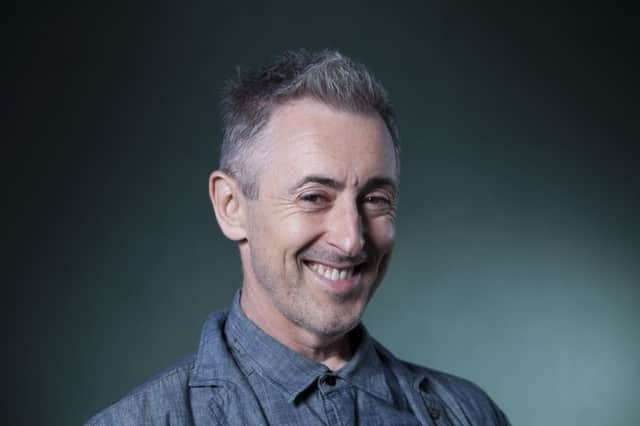Edinburgh Book Festival roundup: Unwrapping memories


Alan Cumming takes a selfie with his interviewer Ian Rankin grinning behind his shoulder, does a quick twirl on stage of the Main Tent as the audience belts out Saturday Night on Broadway, and posts it on Instagram. Within 20 minutes, it’s got 670 “likes”.
So, welcome to his world. To the kind of celebrity that means the Scottish National Portrait Gallery shifts a portrait of Her Majesty out of the way to put up one Christian Hook did of him. Or that Hook would do one of him in the first place. Or that Who Do You Think You Are? would be interested in who he thought he was. Or that his event would be the festival’s joint first (with Rev Jesse Jackson’s) to sell out.
Advertisement
Hide AdAnd yet, as anyone would realise who has read his book Not My Father’s Son (both a class above and totally different from most showbiz memoirs), you really wouldn’t want have wanted to be part of his world – at least in his childhood as the son of vicious, unpredictable head forester on the Panmure Estate, near Carnoustie. A father who told him that he wasn’t biologically anything to do with him on the very same weekend before the Who Do You Think You Are? team started filming their quest to uncover the great buried secret in his mother’s family – why her father died in “a shooting accident” in Burma in 1951.
With that secret about to be revealed, and the one his father had told him exploding, as it were, off camera, this was a life with too much drama in it already. And yet, as his Saturday night interview showed, somehow he has turned that legacy from two damaged men to his – and our – advantage.
Playwright David Hare’s self-portrait as a young man was no less revealing, at least to those of us who didn’t realise that he’s just as lacerating about his own life as his plays are about the nation. He too was disappointed in his father, a ship’s purser who only came home one month a year and who even then showed not the slightest hint of affection.
Prep school was “staffed by active or passive paedophiles to an extent which is now almost unimaginable” and one teacher – mercifully the passive kind – fell in love with him when he was eight. Cambridge was full of disappointed dons doomed to criticism (“organised whingeing, finding fault with the greatest writers who have ever lived, so even Dickens would be dismissed as ‘lacking formal control’”), the bewildering absurdities of class and accent cut forever deep, and adults with undiagnosed PTSD from the war stalked the streets.
On the other hand, at least until That Woman took over, the Seventies weren’t that bad.
Viv Groskop tried to get Irvine Welsh talking about politics, too, and he was too polite to say no, that’s boring, and not what his fans wanted, so we had five dull minutes of it all the same. What they want, even now, a full 22 years after it first appeared, is as much as he can tell them about Trainspotting, about who his favourite character is (“I’ve a soft spot for Spud”, he said to muffled cheers) and when that sequel based on his novel Porno going to get filmed (“it’s still just 50:50 – everyone’s so busy”). They also wanted extra-large dose of Welsh reading about the outrageous adventures of Terry “Juice” Lawson and searching for, in the words of the title of his new novel, A Decent Ride.
Advertisement
Hide AdNo, he told Groskop, there’s nothing, he’d shy away from writing on grounds of taste. “As long as it in someone’s character to do something and not something you’re just doing for effect. Terry, for example, is a feminist: he doesn’t like prostitution because it involves paying for sex, and he likes porn only as a participant. He’s got a moral compass – in his own strange way.”
At least all three authors found it easier to talk about their books than Owen Sheers and Emily Woof in the Saturday’s first session. Chair Al Senter summed up Sheers’s novel I Saw A Man as “a sort of thriller about grief and loss”. “Yes,” said Sheers, “but it’s not specifically about grief and loss”, adding that it wasn’t really a thriller either.
Advertisement
Hide AdWoof, for her part, was writing about “the search for self and how do you find love and the bigger spiritual sense of love and how do the two things come together”. She said that she hadn’t wanted to have a happy ending, but her editor had said she should, and she’d thought long and hard and realised she was correct. So that’s all right then.